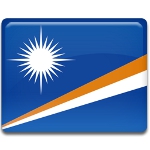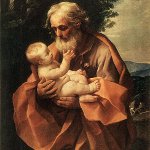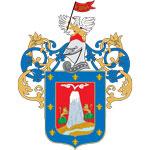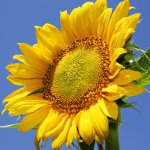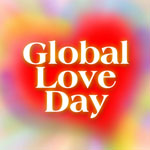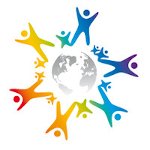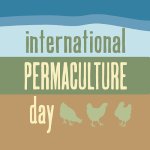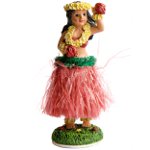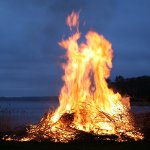Holidays Calendar for May 1, 2016
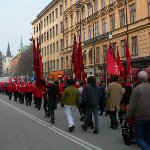 Public Holidays →
Afghanistan,
Albania,
Algeria,
Andorra,
Angola,
Anguilla,
Argentina,
Armenia,
Aruba,
Austria,
Bahrain,
Barbados,
Belarus,
Belize,
Benin,
Bolivia,
Bonaire, St Eustatius and Saba,
Bosnia and Herzegovina,
Botswana,
Brazil,
Bulgaria,
Burkina Faso,
Cambodia,
Burundi,
Cameroon,
Cape Verde,
Central African Republic, ...
Public Holidays →
Afghanistan,
Albania,
Algeria,
Andorra,
Angola,
Anguilla,
Argentina,
Armenia,
Aruba,
Austria,
Bahrain,
Barbados,
Belarus,
Belize,
Benin,
Bolivia,
Bonaire, St Eustatius and Saba,
Bosnia and Herzegovina,
Botswana,
Brazil,
Bulgaria,
Burkina Faso,
Cambodia,
Burundi,
Cameroon,
Cape Verde,
Central African Republic, ...
International Workers’ Day (Labor Day)
International Workers’ Day, also known as Workers’ Day or Labor Day, is an annual celebration promoted by the international labor movement. Celebrated on May 1 each year, it is a public holiday in more than 100 countries worldwide.
On May 1, the Republic of Kazakhstan celebrates Kazakhstan People's Unity Day. It replaced International Workers' Day which was celebrated in Kazakhstan during the Soviet era.
 Public Holidays →
Åland,
Belgium,
Estonia,
Finland,
Gibraltar,
Iceland,
Norway,
Svalbard and Jan Mayen,
Sweden,
Bangladesh,
Cyprus,
Czech Republic,
Eritrea,
Gambia,
Ghana,
Greece,
India,
Libya,
Luxembourg,
Montenegro,
Poland,
Serbia,
Slovakia,
Slovenia,
Sri Lanka
Public Holidays →
Åland,
Belgium,
Estonia,
Finland,
Gibraltar,
Iceland,
Norway,
Svalbard and Jan Mayen,
Sweden,
Bangladesh,
Cyprus,
Czech Republic,
Eritrea,
Gambia,
Ghana,
Greece,
India,
Libya,
Luxembourg,
Montenegro,
Poland,
Serbia,
Slovakia,
Slovenia,
Sri Lanka
May Day
On May 1, several European countries celebrate a public holiday named May Day. One of the oldest festivals in Northern Hemisphere, it’s a traditional spring holiday in many cultures. May Day should not be confused with International Workers’ Day, which can also be referred to as “May Day”, but is completely unrelated to it.
On May 1, Latvia celebrates two holidays at once: Labor Day and Day of Convocation of the Constitutional Assembly. The Constitutional Assembly was the first Latvian parliament.
Constitution Day is the national day of the Marshall Islands celebrated on May 1. It commemorates the adoption of the 1979 Constitution of the Republic of the Marshall Islands, which established the archipelago as a self-governing country.
Saint Joseph, the husband of the Blessed Virgin Mary, has several feast days. One of them is the Feast of Saint Joseph the Worker observed on May 1. It is an optional memorial in the Roman Catholic Calendar. However, it is considered a public holiday in Vatican City.
The feast of the Virgin of Chapi is one of the largest religious festivals in Peru. It takes place every year between April 30 and May 2, but the most important events usually take place on May 1.
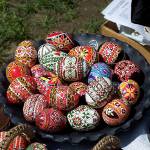 Religious Holidays →
Belarus,
Ukraine,
Russia,
Serbia,
Moldova,
Bosnia and Herzegovina,
North Macedonia,
Montenegro,
Georgia,
Greece,
Cyprus,
Albania,
Romania,
Syria,
Lebanon,
Bulgaria
Religious Holidays →
Belarus,
Ukraine,
Russia,
Serbia,
Moldova,
Bosnia and Herzegovina,
North Macedonia,
Montenegro,
Georgia,
Greece,
Cyprus,
Albania,
Romania,
Syria,
Lebanon,
Bulgaria
Easter in Eastern Christianity
Easter is one of the most important feasts of the year for all Christians since it commemorates the resurrection of Jesus, which is a foundation of the Christian faith. Western and Eastern Christians celebrate Easter on different dates, depending on the calendar they use.
The majority of Orthodox churches use the Julian calendar or the Revised Julian calendar for calculating movable feasts. They include Oriental Orthodox churches such as the Coptic Orthodox Church of Alexandria, the Ethiopian Orthodox Tewahedo Church, and the Eritrean Orthodox Tewahedo Church. Therefore, Easter in Egypt, Ethiopia and Eritrea coincides with Easter in many Eastern European countries.
International Sunflower Guerrilla Gardening Day is an annual event held on May 1. It was created by a group of guerrilla gardeners from Brussels in 2007.
World Laughter Day is annually celebrated in many countries around the globe on the first Sunday in May. This jolly holiday was started in 1998 in India.
Global Love Day is celebrated annually on May 1. Unlike Valentine’s Day, this observance isn’t focused solely on romantic love; it was conceived as a celebration of unconditional love that helps foster understanding and forgiveness.
International Family Equality Day is observed annually on the first Sunday of May. It was created to increase the visibility of LGBT families and highlight the importance of protecting their rights.
International Permaculture Day is observed annually on the first Sunday in May. It was created to bring together permaculture enthusiasts from around the globe and raise awareness of an approach to land management and settlement that allows to create sustainable, environmentally friendly and largely safe-reliant households and communities.
School Principals’ Day, also known as National School Principals’ Day or National Principal’s Day, is observed in the United States and Canada on May 1. It was created to acknowledge the valuable work performed by school principals and vice-principals and their dedication to the job.
National Physicians’ Day (Journée nationale des médecins) is celebrated in Canada on May 1 every year. It is observed to recognize the extraordinary people who dedicate their lives to medicine and work tirelessly to care for others and help them stay healthy.
May 1 is Lei Day in all islands of Hawaii. Lei as the symbol of Hawaii have a very rich and colorful history.
May 1 is Loyalty Day in the USA. This holiday was developed to set aside for the reaffirmation of loyalty to the U.S. and for the recognition of the heritage of American freedom.
May 1 is Law Day in the USA. This holiday is officially recognized and it's meant to remind people of the role of law in the foundation of the country and how important it is for the society.
On May 1, the Indian states of Maharashtra and Gujarat celebrate their foundation anniversaries (Maharashtra Day and Gujarat Day, respectively). They commemorate the dissolution of Bombay State in May 1960, which resulted in the formation of two new states.
Staffordshire Day is the official holiday of the English ceremonial county of Staffordshire, which is celebrated annually on May 1. It was inaugurated in 2015 to promote the history and culture of Staffordshire.
Silver Star Service Banner Day is an annual observance held on May 1 to honor and support wounded, injured and ill service members and veterans of the United States Armed Forces. Despite its name, the banner is not related to the Silver Star Medal.
May 1 is a perfect day for a parfait. Enjoy chocolate sundae on National Chocolate Parfait Day, that falls on May 1.
Beltane is an ancient Gaelic festival that is associated with the beginning of summer. It coincides with May Day, but the celebration typically begins in the evening of April 30. The world “Beltane” itself refers to the month of May in the Gaelic languages.
EuroMayDay is an annual political day of action against precarity that takes place on May 1, coinciding with May Day. It is promoted as an “updated version” of the traditional May Day that focuses on struggling against the discrimination of working youth and migrants in Europe.
In Kingdom of Tonga, the month of May is dedicated to family. The first Sunday in May is referred to as Children's Sunday, and the following two Sundays are celebrated as Mother's Day and Father's Day respectively.
 Other Observances →
Lithuania,
Hungary,
Mozambique,
Portugal,
Romania,
Spain,
Angola,
Cape Verde
Other Observances →
Lithuania,
Hungary,
Mozambique,
Portugal,
Romania,
Spain,
Angola,
Cape Verde
Mother’s Day
Some countries chose their own dates to celebrate Mother's Day. Lithuania, Hungary, Mozambique, Portugal, Romania, Cape Verde, Angola, and Spain celebrate the holiday on the first Sunday in May.
National Lemonade Day, also referred to simply as Lemonade Day, is observed annually on the first Sunday of May. This amazing holiday was established to teach children the power of entrepreneurship and encourage their entrepreneurial spirit.
Festivals for May 1, 2016
- Palo de Mayo in Bluefields, Nicaragua
- Rochester Sweeps Festival in Rochester, United Kingdom
- Oklahoma Renaissance Festival in Muskogee, USA
- Générations Star Wars et Science Fiction in Cusset, France
- Feria de Jerez (Jerez Horse Fair) in Jerez de la Frontera, Spain
- Texas SandFest in Port Aransas, USA
- Bray Jazz Festival in Bray, Ireland
- International Horticulture Goyang in Goyang, South Korea
- National Film Festival for Talented Youth in Seattle, USA
- Children’s International Film Festival in Dubai, UAE
- Spirit of Speyside Whisky Festival in Aviemore, United Kingdom
- Calgary Expo (Calgary Comics & Entertainment Expo) in Calgary, Canada
- Geneva Book and Press Fair in Geneva, Switzerland
- Abu Dhabi International Book Fair in Abu Dhabi, UAE
- Kaunas Jazz in Kaunas, Lithuania
This Day in History
- 2021 Died: Olympia Dukakis, American actress who performed in more than 130 stage productions, more than 60 films and in 50 television series during a career spanning five decades.
- 2015 Died: Grace Lee Whitney, American actress, singer, and songwriter. She is probably best known for playing She played Janice Rand in the original Star Trek television series and subsequent films.
- 2011 Died: Henry Cooper, English boxer, known for the sheer power of this left hook and his knockdown of Muhammad Ali. He challenged Ali for the World heavyweight championship in 1966 with no success.
- 2011 US President Barak Obama announced that Osama bin Laden, the suspected mastermind behind the September 11 attacks, had been killed by United States special forces in Abbottabad, Pakistan.
- 2009 The Swedish government legalized same-sex marriage.
- 2005 Died: Kenneth Clark, American psychologist. He and his wife Mamie Philipps Clark conducted research among children and were active in the Civil Rights Movement.
- 2004 Estonia, the Czech Republic, Cyprus, Hungary, Latvia, Malta, Lithuania, Poland, Slovakia, and Slovenia joined the European Union. The event was celebrated at the residence of the Irish President in Dublin.
- 2000 Died: Steve Reeves, American bodybuilder and actor, best known for playing the lead character in Hercules. The popularity of the Hercules movies promoted the spread of bodybuilding.
- 1992 Born: Madeline Brewer, American actress, known for starring as Janine Lindo in The Handmaid's Tale and her recurring roles in Orange Is the New Black, Hemlock Grove, and You.
- 1989 Died: Douglass Watson, American actor, recipient of two Purple Heart awards for his service in World War II. He is best remembered for roles in the films Julius Caesar, Sayonara, and The Money Pit.
- 1982 Born: Brian Joseph McCook, known by his drag persona Katya Zamolodchikova, American drag queen, actor, author, recording artist, and comedian who participated in RuPaul's Drag Race.
- 1982 Born: Jamie Dornan, American actor, model, and musician, best known for his role in the TV series The Fall and portraying Christian Grey in the Fifty Shades film trilogy.
- 1978 Naomi Uemura from Japan, traveling by dog sled, reached the North Pole. He became the first person to reach the North Pole alone.
- 1976 Died: Alexandros Panagoulis, Greek politician and poet. He is famous for his attempt to assassinate dictator Georgios Papadopoulos in 1968 and the tortures he was subjected to during his detention.
- 1973 Died: Asger Jorn, Danish painter and sculptor, a founding member of the avant-garde movement COBRA and the Situationist International. He is best remembered for his painting Stalingrad.
- 1972 Born: Julie Benz, American actress. She is known for her roles as Darla on Buffy the Vampire Slayer and its spin-off Angel, and as Rita Bennett on Dexter.
- 1969 Born: Wes Anderson, American filmmaker whose films are known for their eccentricity, unique visual and narrative styles, and frequent use of ensemble casts.
- 1956 Minamata disease, a neurological syndrome caused by severe mercury poisoning, was officially discovered, when a doctor in Japan reported an epidemic of an unknown disease of the central nervous system.
- 1946 Born: John Woo, Hong Kong director, producer, and screenwriter, known for his chaotic action sequences, Mexican standoffs, and frequent use of slow-motion.
- 1945 Died: Joseph Goebbels, German politician, Chancellor of Germany from 1933 to 1945. He was one of the closest associates and most devoted followers of Adolf Hitler.
- 1945 German radio broadcast news of Adolf Hitler's death, falsely stating that he has "fallen at his command post in the Reich Chancellery fighting to the last breath against Bolshevism and for Germany".
- 1937 Born: Una Stubbs, British actress, television personality, and dancer. She is known for appearing as Sherlock Holmes's landlady Mrs. Hudson in the television series Sherlock.
- 1916 Born: Glenn Ford, Canadian-American actor. He was most prominent during Hollywood's Golden Age as one of the biggest box-office draws of the 1940s, 1950s, and 1960s, who had a career that lasted more than 50 years.
- 1904 Died: Antonín Dvořák, Czech composer. All of Dvořák's ten operas, except his first, have librettos in Czech and were intended to convey the Czech national spirit.
- 1900 A dust explosion in a mine killed over 200 men in Scofield, Utah. At that point it was the worst mining accident in American history.
- 1881 Born: Pierre Teilhard de Chardin, French-American priest, paleontologist, and philosopher. He is best remembered for works in paleontology and the discovery of Peking Man, a subspecies of H. erectus.
- 1873 Died: David Livingstone, Scottish missionary and explorer of Africa. He devoted most of his life to the exploration of the African continent.
- 1852 Born: Santiago Ramón y Cajal, Spanish neuroscientist and pathologist, Nobel Prize laureate for his work on the structure of the nervous system. He is widely regarded as the father of modern neuroscience.
- 1851 Born: Laza Lazarević, Serbian psychiatrist and neurologist, one of the greatest figures of his time in the science of medicine and one of the greatest Serbian writers of the 19th century.
- 1848 Born: Adelsteen Normann, Norwegian painter, noted for landscapes of Norway. His fjord paintings made Norwegian fjords a more popular tourist destination.
- 1840 The world's first official adhesive postage stamp was issued in the United Kingdom. Called Penny Black, it featured a profile of Queen Victoria on a black background.
- 1824 Born: Alexander William Williamson, English chemist and academic, best known for the development of ether synthesis named after him.
- 1772 Died: Gottfried Achenwall, German economist and jurist, counted among the inventors of the modern science of statistics.
- 1707 The Kingdom of England and the Kingdom of Scotland were joined by the Act of Union to form the Kingdom of Great Britain.
- 1672 Born: Joseph Addison, English essayist, poet, playwright, and politician. He is widely regarded as the first European journalist.
- 1328 The Kingdom of England recognized the Kingdom of Scotland as an independent state by the Treaty of Edinburgh-Northampton, which ended the Wars of Scottish Independence.


